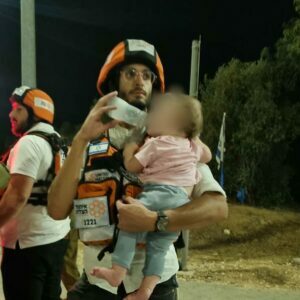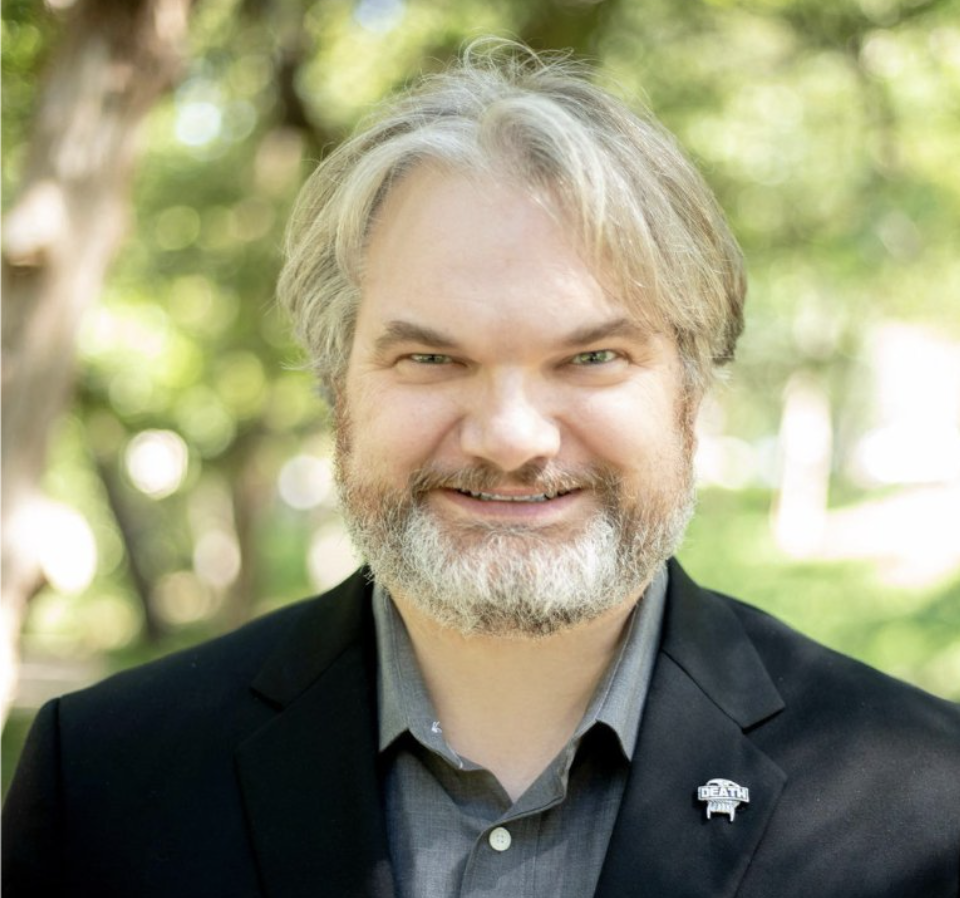Just weeks ago, the volunteers of United Hatzalah, Israel’s premier all-volunteer emergency medical service organization, were celebrating a member who saved the life of a three-year-old boy who suffered cardiac arrest at a park.
On Saturday, many of those same volunteers found themselves coming to the aid of men, women, and children across Israel in the wake of the most deadly terror attack in their nation’s history.
“It was immediate,” Jeremy Cole with United Hatzalah of Israel told DCJournal. “United Hatzalah has an average 92-second response time throughout Israel. That’s done through our nearly 7,000 volunteers and our immense technological capabilities used to auto-locate and dispatch our volunteers. So, we were able to respond almost instantly and work alongside the deployed forces that were out there fighting the war as we were treating them on the front lines.”
United Hatzalah is a nonprofit, volunteer emergency medical service (EMS) organization that helps people free of charge. It has treated more than five million people since 2006 and 675,000 last year alone.
Last fall, the organization also partnered with the Israeli Defense Force (IDF) in a joint training drill simulating a missile strike on a kibbutz – an intentional community in Israel. A second simulated missile strike hit during the exercise. United Hatzalah said at the time that it was important to prepare for any scenario and the chaos that might happen during it.
Cole was impressed by the selflessness of the volunteers in the warzone. “We just had one of our paramedics in an ambu car…that was riddled with AK-47 bullets. Thankfully, he was okay and managed to survive and continue to go on to save lives after that. But putting yourself in harm’s way in a role that’s primarily focused on saving lives as a medic is so unbelievably selfless.”
Other nonprofits are also involved in the effort. The Jewish National Fund USA (JNF-USA), a group that plans developments in Israel and the Negev Desert, provided food and water to IDF soldiers and families in Gaza.
JNF-USA released data this week showing most Gaza refugees have been fleeing to the Arava community along the Israel-Jordan border. JNF’s Arava Emergency Response Center (ERC) volunteers have been protecting the refugees.
“The people who they are guarding…are the people of the emergency response and the volunteers,” Noa Zer, Director of Resource Development, Central Arava Regional Council, said during a briefing. ERC volunteers are also involved in providing medical assistance to the wounded and evacuating them from danger.
The group also provided equipment, including encrypted radios and 115 security volunteer kits featuring bulletproof vests, helmets, and tactical clothing. It also set up bomb shelters across Israel in hopes of protecting people from any attacks. Unfortunately, 260 people hiding in one JNF-USA shelter were killed by a Hamas bomber.
“I have no words to describe how this makes me feel and all of us feel,” said Dr. Sol Lizerbram, JNF-USA president, in a separate briefing on the group’s work. “This is beyond the depths of evil.”
Hundreds have died, and thousands have been injured since the war started. It has caused the International Committee of the Red Cross to warn that “a humanitarian disaster” is likely if both parties don’t show restraint. The United Nations also asked for humanitarian aid in the Gaza Strip.
Israeli Defense Minister Yav Gallant said, “We are fighting human animals, and we will act accordingly…We are imposing a complete siege on Gaza. There will be no electricity, no food, no water, no fuel. Everything will be closed.”
What won’t be closed is the work being done by volunteers. They promise to keep working despite the first war in Israel in decades. A war that does not distinguish between military, Israeli, and Palestinian civilians or the paramedic hiding in a kitchen as bullets fly around her.
“Our number one goal is to save any life we can, no matter who the person is,” said Cole. “And that we have a dedicated base of volunteers that are doing that right now…We need help with gaining supplies to continue to tourniquet legs and repair bullet wounds and defibrillate elderly and those infirm and sick and transport people to hospitals.”


